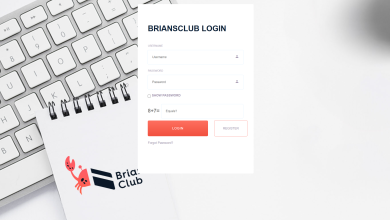Introduction
The education landscape has undergone a profound transformation with the advent of technology. Learning Management Systems (LMS), particularly in the context of schools (often referred to as School LMS), have emerged as powerful tools that have revolutionized the learning experience. In this article, we will explore how School Learning Management System enhance learning experiences and engage students effectively. In this article, we will explore how School Learning Management System enhance learning experiences and engage students effectively.
- Centralized Learning Hub
A School LMS serves as a centralized learning hub where students and teachers can access all their course materials, assignments, and resources. This digital classroom simplifies the learning process by providing a unified platform for all educational content, reducing the need for students to navigate multiple websites or tools.
- Anytime, Anywhere Access
One of the key advantages of School LMS is the flexibility it offers in terms of access. This accessibility is particularly valuable for students with busy schedules or those who prefer self-paced learning.
- Multimedia Learning Resources
School LMS platforms enable educators to create and share multimedia learning resources, such as videos, presentations, interactive quizzes, and simulations. These engaging materials cater to diverse learning styles and capture students’ attention, making the learning process more dynamic and enjoyable.
- Interactive Learning Modules
Many School LMS platforms include interactive features that encourage active participation. These modules may include discussion forums, chat rooms, and collaborative projects. Students can engage in meaningful discussions, work on group assignments, and learn from their peers, fostering a sense of community within the virtual classroom.
- Personalized Learning Paths
School LMS platforms often incorporate features for personalized learning. Through adaptive assessments and tracking of student progress, the system can recommend specific resources or learning paths tailored to each student’s strengths and weaknesses. This level of personalization enhances engagement by ensuring that students receive content that is relevant to their individual needs.
- Gamification and Rewards
Gamification elements, such as leaderboards, badges, and points, can be integrated into School LMS platforms to motivate and engage students. These elements tap into students’ natural competitiveness and desire for recognition, making the learning experience more enjoyable and rewarding.
- Assessment and Immediate Feedback
School LMS platforms streamline assessment processes by allowing educators to create and administer online quizzes and assignments. The system can automatically grade assessments, providing students with immediate feedback on their performance. This instant feedback promotes continuous improvement and helps students stay on track.
- Progress Tracking
School LMS systems often include features for tracking student progress and performance. Educators can easily monitor attendance, grades, and engagement metrics, enabling them to identify students who may be struggling and provide timely support.
- Collaboration and Communication
Effective communication and collaboration are essential for engaging students. School LMS platforms include communication tools such as messaging, announcements, and discussion boards, allowing students to interact with their peers and instructors easily. These features foster a sense of connection and support within the virtual classroom.
Conclusion
In conclusion, School Learning Management Systems have revolutionized education by offering a centralized learning hub, anytime, anywhere access, multimedia learning resources, interactive learning modules, personalized learning paths, gamification and rewards, assessment and immediate feedback, progress tracking, and collaboration and communication tools.
As technology continues to advance, School LMS platforms will likely become even more sophisticated, offering additional features and integration options. Educational institutions that embrace these systems can provide students with a more engaging, interactive, and personalized learning experience, ultimately improving student outcomes and preparing them for success in the digital age. The power of School Learning Management System lies in their ability to transform traditional education into a dynamic and student-centered learning environment.





